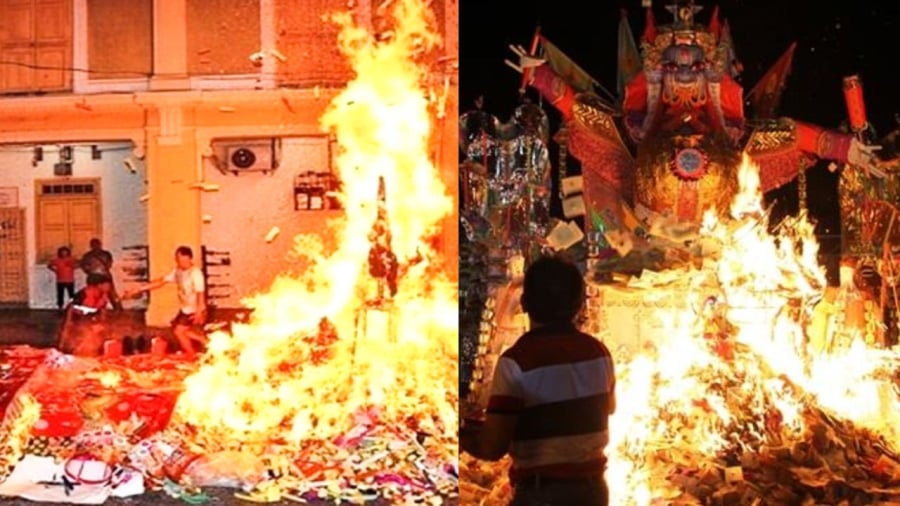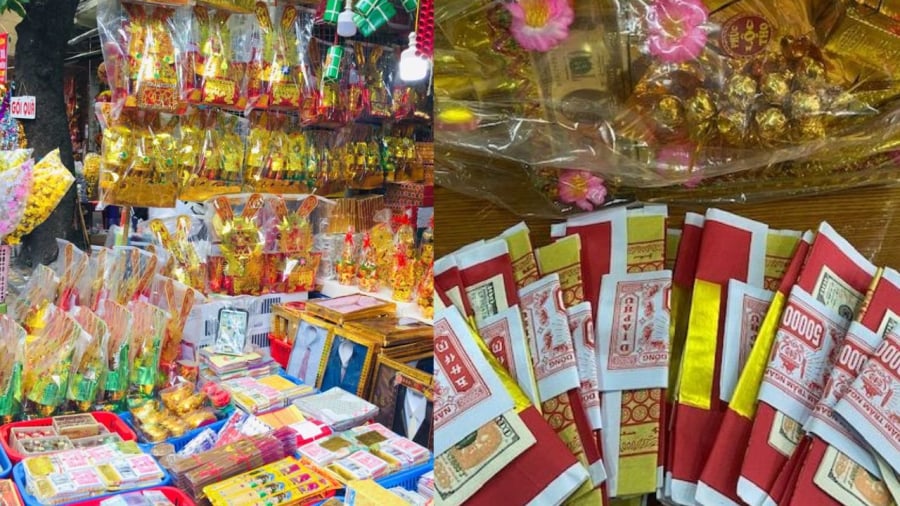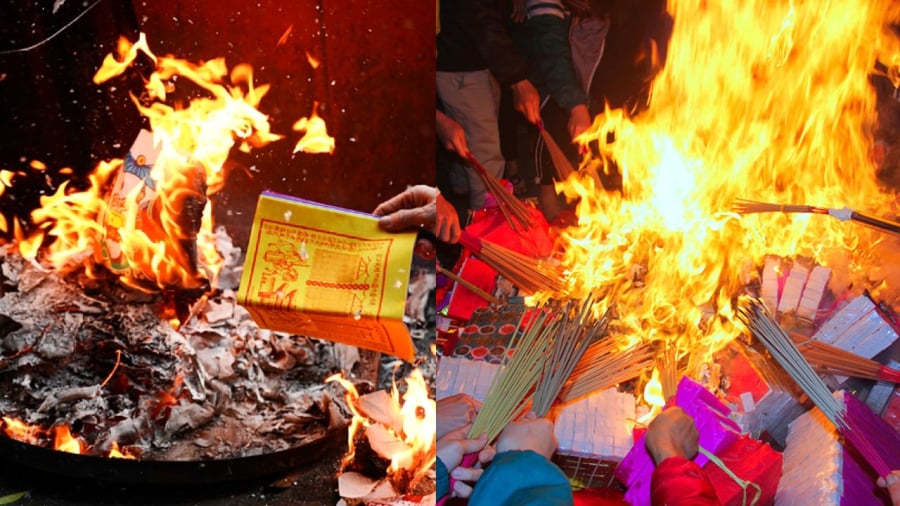Buddhism Discourages the Burning of Paper Offerings
If you’re chanting Nam mô a di đà Phật, it’s important to remember that Buddhism does not encourage the burning of paper offerings. In the 204/TB-HDS Communiqué issued for the 2568 Buddhist and 2024 Gregorian calendar years, Venerable Thich Thien Nhon, Deputy Patriarch of the Most Venerable Dharma Master, and President of the Vietnam Buddhist Sangha’s Executive Council, emphasized that during the organization of the Ullambana Festival, one should refrain from burning paper offerings to prevent fire hazards.

Burning Paper Offerings is Not Advisable
The Promotion of Paper Offerings Due to Superstition and Fraudulent Practices
The practice of burning paper offerings originated in China. According to Confucian teachings in the I Ching, during ancient times, the dead were simply buried, and there was no concept of graves, coffins, or burial rituals. During the Zhou Dynasty (1122 BC), a new custom emerged where the dead would be buried with their valuable possessions, including their favorite concubines and attendants. As this practice was deemed inhumane, it was eventually abolished. However, in the first year of the Yuanxing era (105 AD) during the Han Dynasty, Tai Ling discovered how to make paper from the Daphne odora tree. With the invention of paper, Wang Yu, a contemporary of Tai Ling, conceived the idea of creating paper replicas of valuable items such as gold, silver, and clothing to be burned as offerings.

Paper Offerings: Initially Humanitarian, Later Exploited for Superstition
However, the promotion and excessive emphasis on paper offerings stem from a deceitful and fraudulent scheme. During the reign of King Da Zong of the Tang Dynasty (762 AD), when Buddhism was flourishing, a monk named Dao Tang wanted to attract more followers to Buddhism. He exploited the custom of burning paper offerings and suggested to the king that people should be allowed to burn large quantities of paper offerings to show respect to the deceased. The king, eager to gain favor with the people, agreed to this proposal. This decision played into the hands of those who profited from the people’s superstitions, resulting in an increase in the burning of paper offerings. When Buddhist monks and enlightened members of the public spoke out against this practice, Wang Yu’s brother, Wang Lun, devised a scheme to continue selling paper offerings. He arranged for someone to pretend to be dead, complete with a ventilated coffin, and spread the word of the “death.” As expected, neighbors and acquaintances flocked to pay their respects, and Wang Lun used this opportunity to burn paper offerings, including paper effigies and paper money. Suddenly, the coffin began to shake, and the supposedly dead person sat up as if they had been rescued from the grasp of death. This classic marketing ploy continues to influence people even today.
The Dangers of Burning Paper Offerings
Paper offerings are made of thin paper that can easily ignite and may contain chemicals that enhance combustion. Additionally, the colors and dyes used on these offerings can be toxic. Therefore, burning excessive amounts of paper offerings poses a fire hazard and should be avoided. There have been reported incidents of fires caused by burning paper offerings, especially during hot and dry weather conditions in narrow alleys. Caution is advised when engaging in this practice.

Be Cautious to Avoid Fire Hazards
Alternative Ways to Accumulate Merit
– Instead of burning offerings, consider donating real items to those in need. This act of charity can be dedicated to your ancestors and parents, generating good karma.
– Engage in charitable acts and dedicate the merit to your ancestors. Emulate and perpetuate the good qualities and wishes of your forebears.
– While the original intention behind paper offerings was relatively humanitarian, as it helped curb the practice of burying people and their possessions alive, it has since devolved into a wasteful and superstitious custom. If you wish to express your respect for your ancestors, it is acceptable to burn a small amount of paper offerings as a symbolic gesture. However, excessive burning is harmful, wasteful, environmentally damaging, and increases the risk of fire.
– Leading a virtuous life, cultivating your mind, and performing good deeds will bring blessings to you and your loved ones.
Reference for further exploration
The Ancient’s Wisdom: “7 Won’t Bury the Father, 8 Won’t Bury the Mother” – Unraveling the Mystery
“Burying a parent is one of the toughest moments in life, and the old adage, ‘7 won’t bury their father, 8 won’t bury their mother’ is a poignant reminder of the complexities of life and death. This proverb, passed down through generations, holds a deeper meaning that isn’t always readily understood.”



































